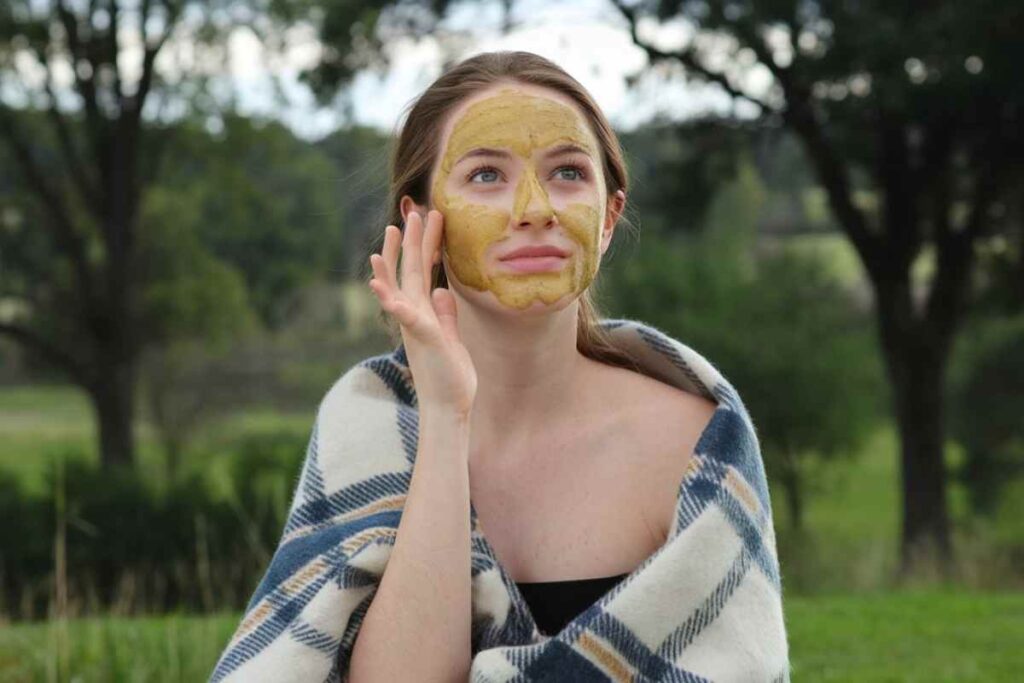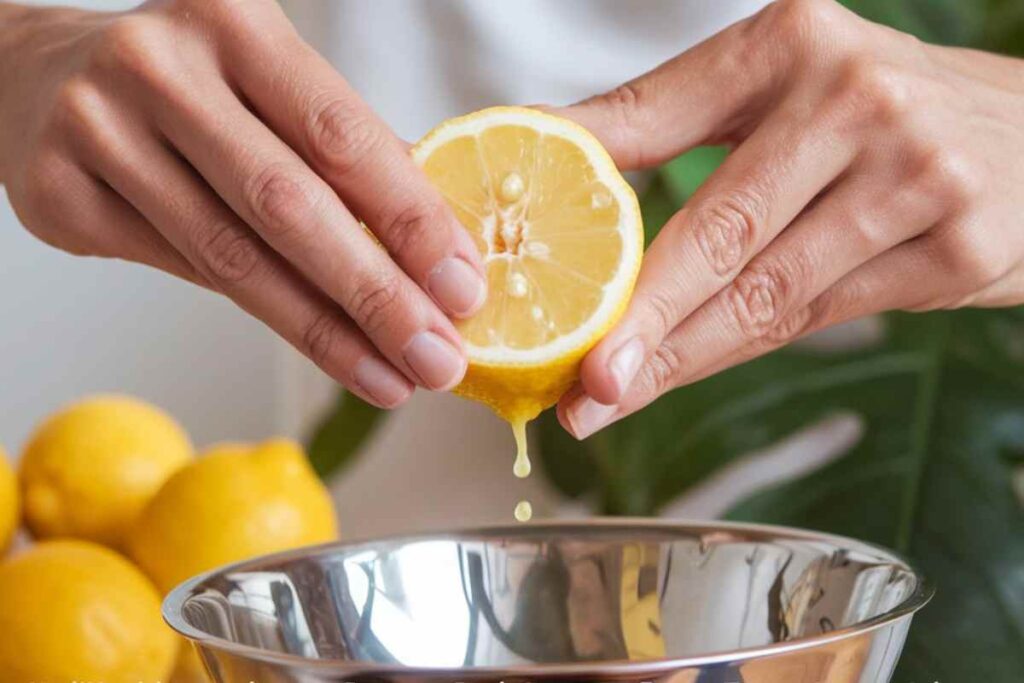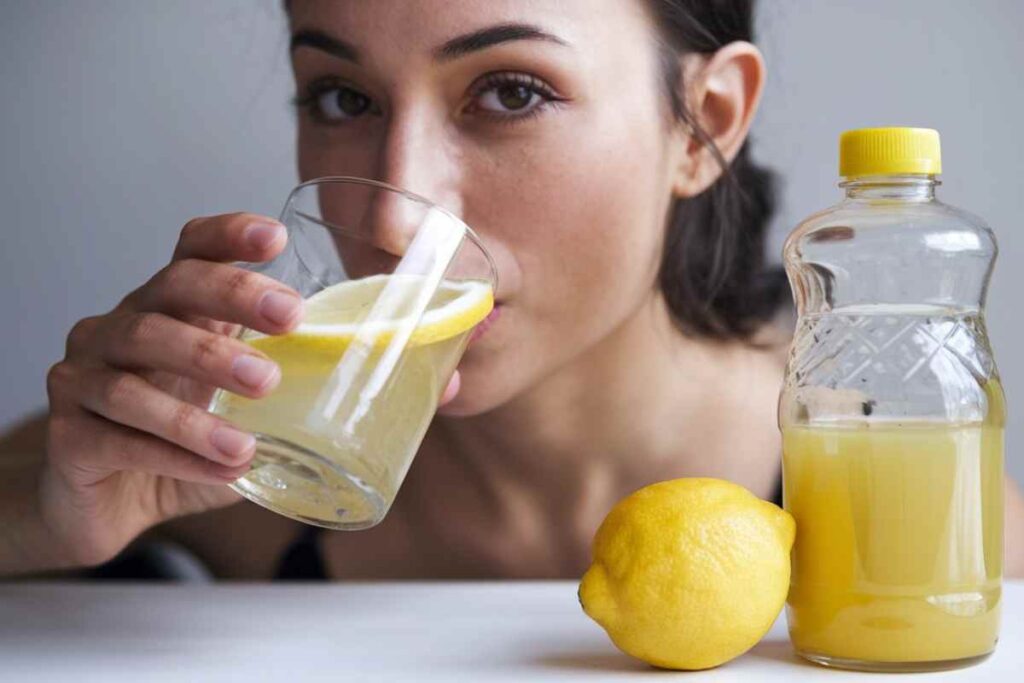Dark spots, or hyperpigmentation, are often caused by sun exposure, acne, or aging.
Natural remedies for dark spots on the face, such as lemon juice and Tang, are popular due to their vitamin C content, which brightens skin and reduces pigmentation.
However, these ingredients can be harsh, especially for sensitive skin.
Benefits of lemon juice for skin whitening

Lemon juice is a natural exfoliant due to its citric acid, helping to remove dead skin cells and promote cell turnover.
The high vitamin C content aids in lightening dark spots and brightening the complexion.
However, this juice can be pretty harsh on sensitive skin. Its high acidity can cause dryness, irritation, or even burning if used in excessive quantities or without proper dilution.
It can also make the skin more sensitive to UV rays, increasing the risk of sunburns and further darkening.
This is why diluting lemon with water or mixing it with other soothing ingredients is essential.
Tang for Skin
Tang is a powdered drink mix that was originally marketed as a beverage for children and adults alike. It is known for its fruity flavor and vibrant color, primarily derived from artificial ingredients.
Tang typically contains vitamin C (ascorbic acid) along with sugars and other additives, which can lead some people to experiment with it in DIY skincare.
Vitamin C Benefits
Vitamin C is widely recognized for its antioxidant properties and its role in collagen synthesis. It can help brighten the skin, reduce the appearance of dark spots, and improve overall skin texture.
The brightening effect is due to vitamin C’s ability to inhibit melanin production, which is the pigment responsible for dark spots.
Using Tang in DIY Skincare
Some DIY skincare enthusiasts mix Tang with other ingredients, such as juice lemon, to create a brightening mask.
They believe that the combined vitamin C from both sources could enhance the skin’s radiance and potentially lighten dark spots.
Step-by-Step Application

Preparation
Mix a teaspoon of Tang with a tablespoon of diluted water to reduce acidity.
Application
Use a cotton ball to apply the mixture directly to dark spots, carefully avoiding the eyes and lips.
Leave On
Let the mixture sit on the skin for 5–10 minutes, then wash off with lukewarm water.
Moisturize
Apply a gentle, hydrating moisturizer immediately to counteract dryness or irritation.
Sun Protection
Since lemon juice increases sensitivity to sunlight, always use sunscreen during the day, especially if you’ve applied juice of lemon to your skin.
Risks and Alternatives
Risks of Using Lemon Juice for Dark Spots
Skin Sensitivity
It is highly acidic, which can irritate, especially for those with sensitive skin. Upon application, it may lead to redness, burning sensations, or a stinging feeling.
Photosensitivity
It can increase the skin’s sensitivity to sunlight. This means that after applying lemon juice, the skin may be more prone to sunburn and further pigmentation issues if exposed to UV rays. It’s essential to apply sunscreen when using lemon for skin treatments.
Potential for Allergic Reactions
Some individuals may be allergic to citrus fruits. Before widespread use, a patch test is recommended to check for any adverse reactions.
Ineffectiveness for Some
While lemon can lighten dark spots for some, it may not be effective for everyone, especially for deeper pigmentation or certain skin types.
Alternatives to Lemon Juice
Aloe Vera
Known for its soothing properties, aloe vera can help reduce inflammation and hydrate the skin. It contains compounds that may help reduce dark spots without the irritation associated with lemon juice.
Rosehip Oil
This oil is rich in vitamins A and C, both of which can promote skin regeneration and help fade dark spots. It’s often well-tolerated by all skin types.
Niacinamide
A form of vitamin B3, niacinamide is known for its ability to brighten the skin and reduce hyperpigmentation. It also strengthens the skin barrier and improves overall skin texture.
Azelaic Acid
This naturally occurring acid has antibacterial and anti-inflammatory properties. It’s effective for treating acne and rosacea while also helping to lighten dark spots and even out skin tone.
Evidence-Based Skin Care Approach

Natural remedies may provide mild improvements, but dermatologists often recommend professional treatments for noticeable results.
Chemical peels, retinoids, and laser treatments are potent alternatives for persistent dark spots.
Lemon and Tang can be complementary treatments but should not replace scientifically proven options for more severe skin issues.
Conclusion
Wellhealthorganic.com Remove Dark Spots On Face Tang – Lemon Juice and Tang can help brighten skin and lighten dark spots, they must be used cautiously due to their potential for irritation.
Always patch-test any home remedy before applying it to your face, and consult a dermatologist if necessary to prioritize your skin’s overall health.
FAQs
How often should I use Tang and lemon juice for dark spots?
Use the mixture 2-3 times per week. Overuse may cause dryness or irritation.
Is lemon juice safe for all skin types?
No, lemon juice can cause irritation, especially for sensitive skin. Always patch-test before use.
Are there any alternatives to lemon juice?
Gentler alternatives include aloe vera, niacinamide, or vitamin C serums.
How long does it take for lemon juice to show results?
Results from natural remedies may take a few weeks to become noticeable.
Can lemon cause side effects on the skin?
Yes, lemon can cause skin irritation, redness, or increased photosensitivity, especially if used undiluted.




